
BLACKBRIDGE SIDINGS
|
Notes: A gravel pit at Blackbridge, a mile to the east of Wheathampstead, was first excavated in 1887. As the gravel was being removed refuse from London was brought to the site by rail to Blackbridge sidings. From there it was moved to various parts of the site using a two-gauge tramway. After closure of the Luton line to passengers in 1965 goods traffic continued to pass along the line until November 1965 when a connection with the Midland line at Luton opened. This made the track east of Luton redundant, and the rails were lifted the following year as far as Blackbridge sidings which remained open until closure of the landfill site on 24th May 1971. By July 1971 the four sidings and all of the remaining track back to Welwyn Junction had been lifted. Today the site is still contaminated and fenced, with little growing. The Luton line runs along the southern end of the landfill site and now forms part of the Ayot Greenway cycleway and footpath between Welwyn Garden City and Wheathampstead. Although now demolished the abutments of Black Bridge can still be seen and, just to the west of the bridge, the siding branched to the north, taking an almost circular route; its course can still clearly be seen as a shallow depression. To the west of the site a short section of the Ayot Greenway has been tarmacced close to its junction with Cory-Wright Way (B653) where it makes a two-way junction. The road has a white line down the middle and metal posts for road signs close to the junction. Earth is mounded up at the junction to stop cars accessing the short stretch of road. Cory-Wright Way, which is also known as the Wheathampstead bypass, was built in the early 1970s, and it is assumed that this road dates from the same period. It is an unfinished road that would have followed the track bed. |
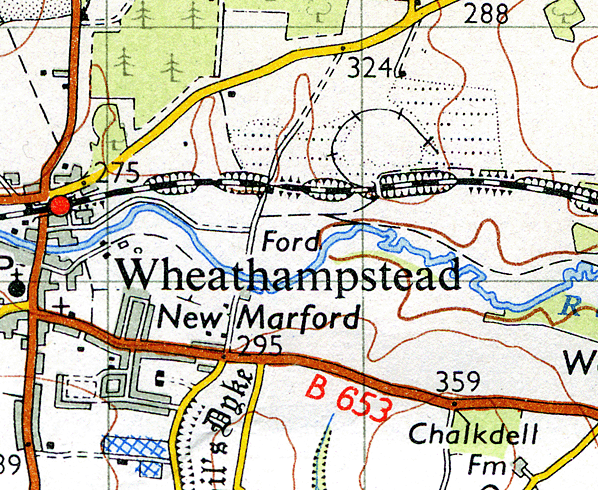
old2.jpg)
old1.jpg)
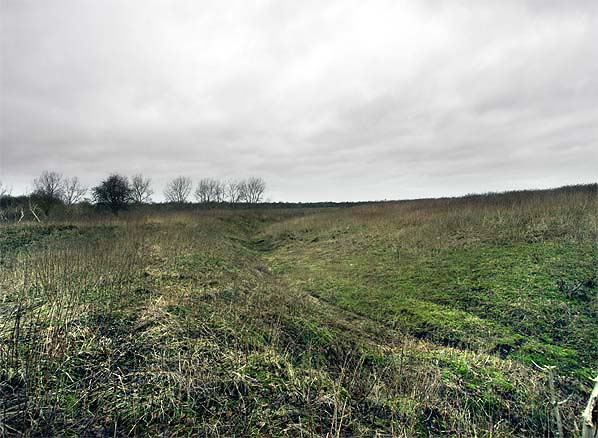
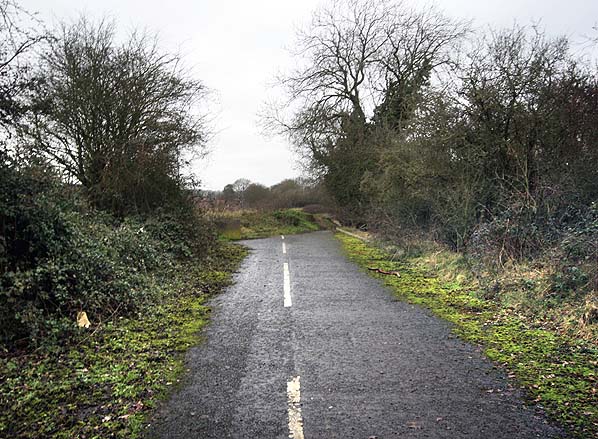
Photo by Nick Catford
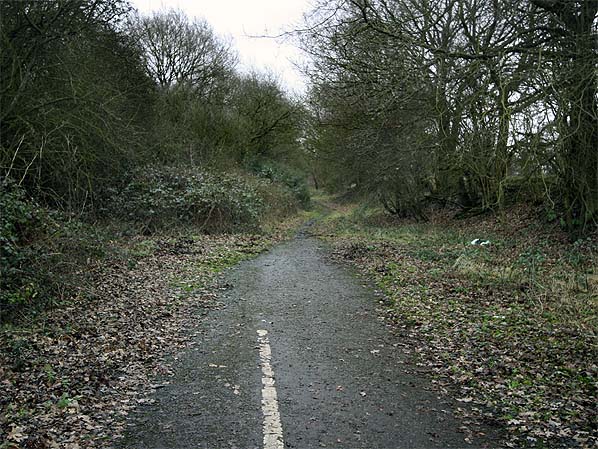
Photo by Nick Catford
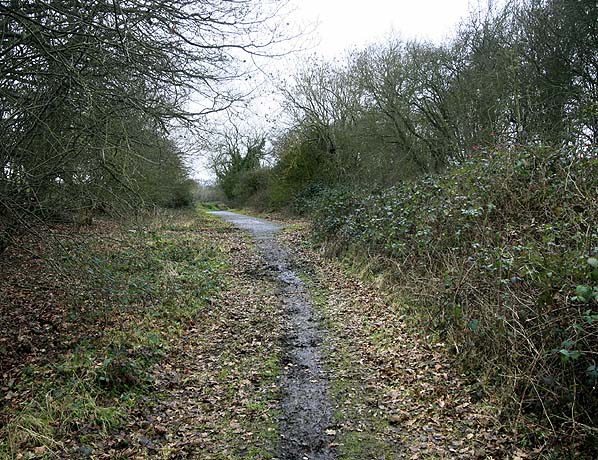
Photo by Nick Catford
| Last updated: Friday, 26-May-2017 10:00:07 CEST |
© 1998-2011 Disused Stations
|
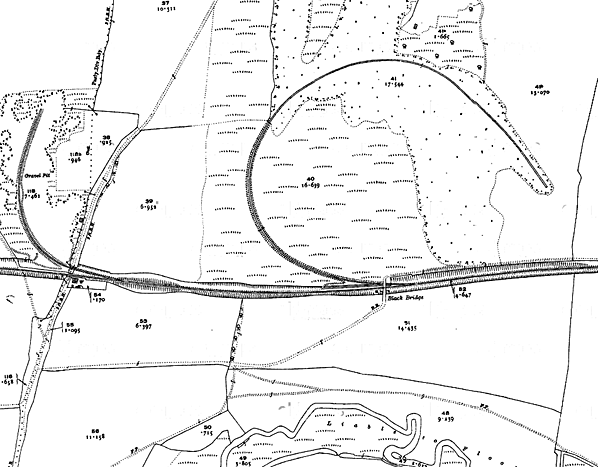
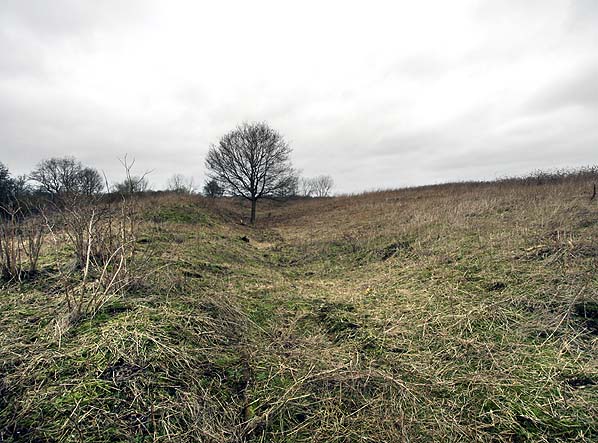

 Home Page
Home Page